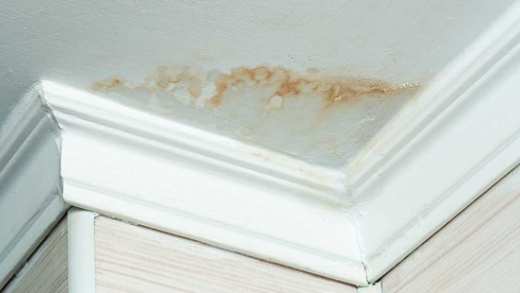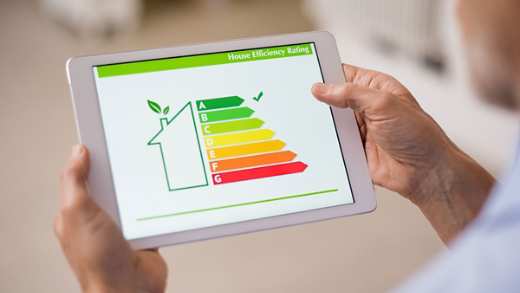Everyone knows insuring your home is important; it’s a way to protect perhaps the most valuable investment you’ll ever make in life. It’s frequently one of the first steps for a new homeowner, and provides some peace of mind – as well, of course, assistance when disaster strikes.
But just as your home evolves and changes over time, so too should your insurance cover; it’s not a simple matter of ‘set it and forget it’. In fact, you should review your home insurance every single year, to ensure that your policy is at the correct value for your property. Over-insuring, or under-insuring a home can be a costly error – and with re-build costs at a sky high level, it’s never been more important to get it right.
So, let’s start with one of the most basic questions - how much should I insure my house for?

How to avoid over or under insuring your home
Value vs cost
One of the most common misconceptions about home insurance is that it’s valued against the market price of your property. That, of course, is normally far higher than the actual cost to rebuild the structure and any outbuildings you may have – but it’s the rebuild cost and an allowance for some inflation that your policy should cover you for. Calculating your insurance based on market value will likely leave you over-insured and shelling out for cover that you’ll never be able to claim.
When thinking about home insurance you should assess the current cost of the reconstruction of all buildings, including outbuildings, and importantly allow for inflation on top of that.
The rebuilding cost of your property, not the market value, should be used when seeking home insurance quotations.
In essence: if, with some inflation it would cost €250,000 to rebuild your home and outbuildings, then that’s the sum it should be insured for.
It’s vital to note, though, that rebuild costs will fluctuate – which can easily lead to your property being under-insured. A 2022 report by the Society of Chartered Surveyors Ireland shows that rebuild costs have increased by a national average of 21% over the past 12 months alone.1 When the cost of rebuilding your home increases, your policy should reflect that too.
Market research commissioned by Aviva established that, while the majority of homeowners were confident that they had adequate home rebuilding and contents cover in place, a significant 36% of respondents believed that they could be underinsured. That’s a lot of uncertainty. The good news is that this can be quickly addressed. My advice, to those homeowners, is to review the adequacy of your cover each year and don’t leave yourself exposed if you need to make a claim. Use the SCSI tool - it’s easy to use and accurate. And importantly at Aviva, we use the same data to review adequacy of cover with our claims.
David Lyons, Senior Claims Manager
It’s why we recommend re-assessing your policy on an annual basis – and the SCSI’s House Rebuild Calculator can help you identify the current rebuild value of your home. And their website is a great resource of information, providing impartial advice on the sector. To calculate your home contents try Aviva's Contents Insurance Calculator.
The risks of being under-insured
If you are under-insured, and in the event of a claim being made on your policy, you run the risk of only a portion of your claim being paid out. For the majority of policies an ‘average’ condition will apply which in the event of under-insurance will reduce your claim payment by the percentage you are under-insured. Here are some examples of how under-insurance could affect a claim payment.
Partial Damage Example
- The home is insured for €300,000 but the full cost to rebuild the property is €400,000.
- This means that the home is under-insured by €100,000 (25%).
- Damage occurs to the home and the cost to repair the damage is €100,000.
- Where the condition of average applies a deduction of 25% (€25,000) is made from the cost of repairs.
- Therefore, the most the policyholder will receive is a payment of €75,000.
Total Loss Example
- The home is insured for €300,000 but the full cost to rebuild the property is €400,000.
- This means that the home is under-insured by €100,000 (25%).
- Damage occurs to the home where it requires a complete rebuild.
- As the home has been insured for €300,000 this is the maximum payment that can be made. The outcome is the same when the condition of average applies.
In both of the above scenarios the payment made to the policyholder is not sufficient to fully repair the damage caused.
Note: The above examples do not include other settlement factors, such as excess.
It all adds up
The last few years have seen huge numbers of people tackling their own home improvement projects – from revamped bathrooms and refitted kitchens to loft conversions and new conservatories.
In fact, our 2021 research found that 1.5 million homeowners had spent over €11 billion in the preceding 12 months alone on home improvements, and over 861,000 homeowners had plans to undertake further improvements to their homes.
And while your insurer doesn’t need to know about paint jobs, carpet fittings or other cosmetic changes, it’s a standard condition on most policies to inform your insurer about structural renovations and major alterations before you begin.
Not only will the value of your home likely change, but you may also see your policy impacted by everything involved; for example, the workers and materials on site, or parts of your home being exposed to the elements for a period of time.
So, if you’re considering undertaking a new project around your home, make sure to consult your insurer beforehand. It could also be a good idea to look at taking out extra accidental damage cover for your home’s contents, as your standard policy won’t cover any mishaps during renovation.
Keeping your insurance up to date
Going forward it’s important to update the sums your home is insured for regularly, it’s not a case of set and forget. Any updates to your home can increase the rebuild cost, as can inflation, therefore it’s key to review your policy on a regular basis. Check out our FAQ on insuring your home to learn more.
Your policy schedule contains details of the sums insured for your home.
If you have your home insurance policy directly with Aviva you can access your policy documents at any time through MyAviva.
Alternatively, you may wish to get in touch with us to amend the sums insured.
If your home insurance policy was purchased directly with Aviva, you can contact us on 091 78 44 55 Monday to Friday between 9am and 6pm.
If you purchased your policy through a broker, you will need to get in touch with them directly.
At Aviva, we’re committed to protecting your home, that's why you get help in a home emergency, as standard. To learn more about this and other great benefits offered by Aviva home insurance, get your quote today.2
















